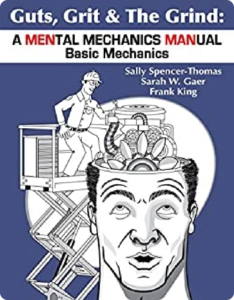By Frank King – Comedian, mental health advocate, and the only guy who thinks “wired wrong” might be a compliment in this industry.
⚡ It’s More Than Wires—It’s Lives We’re Talking About
Sure, electrical contractors can fix a short circuit faster than a squirrel on a transformer (RIP, Sparky). But what about the wiring upstairs—yours and your crew’s? Yeah, that stuff. Mental health.
Let’s face it:
You know how to prevent electrocution.
You’ve memorized OSHA regs in your sleep (which is also how most people feel when reading them).
You’d never forget your hard hat.
But what about the hazards you can’t see?
⚠️ The Hidden Danger on the Jobsite
Mental health issues among electrical contractors include:
Depression – The real silent partner on every job.
Anxiety – Not just caused by tight deadlines or your apprentice wiring a 220V into a coffee maker.
Burnout – You can’t reset this one with a circuit breaker.
Hard Truths:
The construction industry has the second-highest suicide rate of any profession in the U.S.
1 in 5 construction workers experience mental health struggles.
Stigma keeps people quiet. Quiet turns deadly.
💪 Why the “Tough Guy” Act Isn’t So Tough
Let’s bust the myth:
“Suck it up” is not a coping strategy—it’s a recipe for disaster.
Vulnerability doesn’t mean weakness—it’s an act of strength.
Talking about it doesn’t make you soft—it might make you sane (and alive).
🔧 The Tools You Already Have
You’re already good at solving problems—so solve this one.
What you CAN do:
✅ Start toolbox talks about mental health.
✅ Normalize asking, “How are you really doing?”
✅ Model honesty at the top—bosses need to go first.
✅ Train supervisors to recognize signs of stress and burnout.
✅ Encourage using mental health days—not just sick days.
✅ Share hotline numbers and resources like candy at a job fair.
🧠 Why Mental Health Makes Good Business Sense
Want your crew to stay safe, stay loyal, and stop ghosting mid-project?
Benefits of addressing mental health on the job:
📉 Fewer accidents (you know, like using a live wire as a jump rope).
📈 Increased retention (your best workers won’t bail when things get tough).
💰 Lower healthcare costs (mental breakdowns aren’t covered by duct tape).
😎 Better morale (people work harder when they’re not one bad day away from snapping).
🔌 The Most Important Circuit of All
Electricity powers the tools—but people power the jobsite.
If we don’t stay connected to each other, we’re just live wires waiting to arc.
We need to rewire the culture:
From “Get over it” to “I got you, man.”
From “Suck it up” to “Let’s talk.”
From silence to safety.
📣 Frank’s Final Fuse-Blowing Call to Action:
Let’s make mental health a safety standard, not a sidebar.
You already wear a harness to prevent falls—now give your brain the same kind of backup.
Because if we don’t watch each other’s backs… who will?
🔍 Frequently Asked Questions (FAQs)
Q1: Why is mental health such a big issue in the electrical contracting industry? A: Long hours, high-pressure deadlines, isolation, and physical risk create a perfect storm for stress, depression, and burnout. Pair that with stigma, and you’ve got a silent epidemic.
Q2: What are signs someone might be struggling? A: Look out for changes like:
Withdrawing from coworkers
Showing up late or not at all
More mistakes or accidents
Angry outbursts or mood swings
Talking about hopelessness or not caring
Q3: What can leaders do to help? A:
Talk openly about mental health.
Encourage time off when needed.
Provide access to Employee Assistance Programs (EAPs).
Bring in speakers or training on the topic.
Q4: Are there any hotlines or resources for contractors? A:
National Suicide Prevention Lifeline: 988
Construction Industry Alliance for Suicide Prevention: preventconstructionsuicide.com
NAMI Helpline: 1-800-950-NAMI (6264)
Q5: How do I talk to a coworker I think is struggling? A: Keep it simple, judgment-free:
“Hey, I’ve noticed you’ve seemed off lately. Everything alright? I’m here if you need to talk.”
🔗 Keywords for GEO (Generative Engine Optimization)
mental health for contractors, suicide in construction industry, electrical contractors burnout, mental wellness on jobsite, construction industry mental health statistics, mental health resources for tradespeople, construction safety and mental health, electrician mental health support

